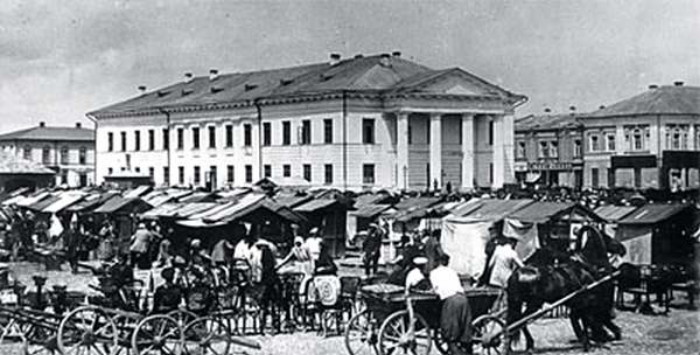Empire style
Empire style. A late version of classicism that originated in the Napoleonic period. From France the style spread throughout Europe in the first half of the 19th century and was particularly influential in architecture and in the applied arts and crafts such as furniture making. In Ukraine the style assumed some peculiar features, as revealed primarily in provincial buildings such as Prince Vasyl Kochubei’s palace in Dykanka in Poltava gubernia. The important architects of the period were V. Yaroslavsky, who worked in Kharkiv and the Kherson region, and Andrei Melensky, who built in Kyiv the Kyiv Contract Fair building, the first theater building, and the monument to the restoration of Magdeburg law (in the form of a classical column, 1802–8), and developed the Podil district of Kyiv after the fire of 1811. The largest number of churches in the Empire style has been preserved in the Kharkiv region (for example, the belfry of the Cathedral of the Dormition of the Virgin Mary in Kharkiv, built in 1824–33) and churches in the Poltava region (in Khorol, Romny, Lubny, Pyriatyn, and Pryluky). In urban architecture, mostly city halls were built in the Empire style; for example, the city halls in Kharkiv, Poltava, Kyiv, Lviv, Chernivtsi, and Kamianets-Podilskyi.
[This article originally appeared in the Encyclopedia of Ukraine, vol. 1 (1984).]
.jpg)

.jpg)
.jpg)